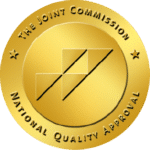“People with OCD are tortured by repeatedly occurring negative thinking and they take some strategy to prevent it… GAD is a very pervasive type of anxiety. [Patients] worry about everything.” describes Associate Professor Yoshinori Sugiura of the University of Hiroshima.
Anxiety and OCD-like behaviors, such as checking if the door is locked, are common in the general population. However, it is the frequency and intensity of these behaviors or feelings that make the difference between a character trait and disorder.
Obsessive-compulsive disorder (OCD) is a mental health condition that affects millions of people in the United States. It causes feelings of anxiety and distress by making your brain focus on unwanted thoughts and images, such as germs or disease. When these thoughts become overwhelming, you may try to control them by performing repetitive actions called compulsions. In this way, OCD takes control from those who suffer from it and prevents them from living a normal life. Fortunately, IOP (intensive outpatient programs) can help people with OCD find relief from their symptoms through therapy and medication
OCD is a disorder with repetitive, disturbing thoughts and fears that get in the way of daily life.f
Obsessive-compulsive disorder (OCD) is a disorder with repetitive, disturbing thoughts and fears that get in the way of daily life. People with OCD may have obsessions about germs or contamination, for example. Or they may have compulsions to check things repeatedly or wash their hands over and over again.
The symptoms of OCD can be severe enough to cause problems at work or school and make it hard to have relationships with friends or family members. But there are treatments that can help reduce these symptoms–and they work best when combined with self-help strategies you can use on your own
There are many types of OCD.
There are many types of OCD. Common symptoms include compulsive washing, cleaning, checking and counting rituals.
The main difference between the types of obsessive-compulsive disorder is what triggers them. For example:
- Some people with OCD may have an obsession about germs or cleanliness that causes them to wash their hands over and over again until they’re raw; other people might feel compelled to check on things (like whether they turned off the stove) multiple times before going to bed at night; still others may experience both obsessions and compulsions as part of their condition–for instance, feeling compelled both by thoughts about intruders breaking into their home while also needing to check every door lock multiple times after coming inside from work each day because they fear being attacked by someone outside when walking in front of windows near doors leading outside
In addition to the physical routine of compulsions, people with OCD may experience stress, depression and anger.
In addition to the physical routine of compulsions, people with OCD may experience stress, depression and anger. They may feel frustrated by their inability to resist their obsessions or compulsive behaviors. They may also be embarrassed about their symptoms and feel as though they are different from other people because of them.
OCD is a disorder that affects the way people think, feel and behave. The exact cause of OCD is unknown but it may be related to changes in brain chemistry or structure; genetics; trauma; stress; childhood abuse or neglect (PANDA).
It is important for people with OCD not to blame themselves for having this condition because it isn’t due to a character flaw or lack of willpower–it’s an illness like any other medical condition that requires treatment just like heart disease requires surgery if it becomes severe enough!
OCD symptoms often begin in childhood or adolescence but can go unnoticed for years.
OCD symptoms often begin in childhood or adolescence but can go unnoticed for years. The disorder can be mistaken for other disorders and normal behaviors, including:
- Obsessive-compulsive personality disorder (OCPD), which is a personality trait that includes perfectionism and an excessive need for control. People with OCPD do not have the same obsessions or compulsions as people with OCD, but they may share some of the same traits. For example, a person who has an obsession with cleanliness may be viewed as having an obsessive-compulsive personality rather than OCD if he or she does not perform rituals to relieve anxiety caused by his or her thoughts about being dirty–such as washing hands repeatedly until they are raw and bleeding–or checking things over and over again before leaving the house because he or she fears something bad will happen while away from home.
- Tics such as eye blinking or head touching; these movements are uncontrollable but become more severe when the affected person tries to stop them from happening (or ticcing).
- Trichotillomania (TTM), which involves pulling out one’s own hair from any part of their body; this behavior has been shown to affect up to 1% of individuals worldwide and is often confused with “Hair Pulling Disorder” in DSM-5 terminology
Anxiety is a common reaction to OCD.
Anxiety is a common reaction to OCD.
Many people who suffer from this disorder also experience anxiety, which can be caused by the same factors as OCD itself (such as stress or traumatic experiences). But there are other things that can cause anxiety in people with OCD:
- The need to perform certain rituals because they are afraid of what will happen if they don’t do them
- Having intrusive thoughts that feel out of control and cannot be stopped
If you think you may have symptoms of OCD, it’s important to seek help from an IOP program so that you can receive treatment for both your anxiety and your symptoms of obsessive-compulsive disorder.
Some people attempt to control their obsessions by avoiding situations they associate with anxiety-provoking thoughts.
Some people attempt to control their obsessions by avoiding situations they associate with anxiety-provoking thoughts. In some cases, this can make it harder for you to recognize that your obsessions are irrational and help you overcome them. For example, if you have an obsession that something terrible will happen if you don’t wash your hands several times per hour (a common form of OCD), then avoiding public restrooms may prevent you from seeing that other people do not react as negatively when they see someone washing his or her hands frequently.
Avoidance is not a good way of dealing with OCD; instead of making things better, it can actually make them worse! If you avoid certain activities because they cause anxiety related to your symptoms, then those activities become more difficult over time because they aren’t practiced regularly enough for the brain’s pathways involved in performing those tasks efficiently
Obsessive-compulsive disorder (OCD) is treatable with therapy and medication
Obsessive-compulsive disorder (OCD) is a treatable mental health disorder. The right treatment can help you manage your symptoms and get back to your life.
IOP can offer many forms of treatment, including medications, and a very effective form of treatment called cognitive behavioral therapy (CBT) that has been shown to be effective in treating OCD. In IOP, you’ll learn how to change the way you think about obsessive thoughts and compulsive behaviors by challenging them with new ways of thinking. You’ll also learn strategies for coping with anxiety so that it doesn’t control your life or interfere with daily routines such as going out into public places or talking on the phone with friends and family members who care about you.*
Conclusion
If you think you might have OCD, it’s important to talk to a doctor. There are many effective treatments for the disorder, including medication and therapy. The first step in getting better is recognizing that something is wrong and seeking help from a professional who can diagnose and treat your symptoms.
Give us a call at Clear Mind Treatment anytime. We are happy to talk to you about our OCD and other programs and packages, such as our ketamine and TMS program. We are Joint Commission accredited and accept all PPO insurance.
310-571-5957
info@clearmindtreatment.com
Los Angeles, Torrance, San Francisco, Scottsdale









